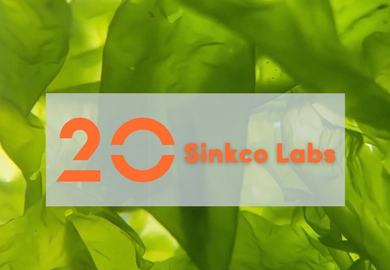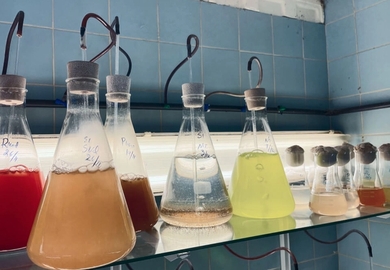What is the Solution?
The ocean is the largest carbon sink on earth, with the sedimentation where dead plankton and algae residues sink to the bottom of the sea and over time covered under layers of sand and mud. This natural process takes millions of years. Startup Sinkco Labs, with operations in Portugal, Denmark and the US, has developed a way to mimic this process in two weeks’ time – all while creating carbon-negative compounds to be used in a number of everyday products such as burgers, protein shakes and toothpastes. By leveraging the nutrients in seaweed, the Sinkco Labs team creates carbon negative compounds before depositing carbon rich organics in the sub-sediment layer of the seabed.
Sinkco Labs is developing a biogeomimetic method which is a low-energy and water-efficient processes to grow macroalgae, that turn atmospheric CO2 into biomass, and extract proteins as well as high-value compounds. The created proteins, lipids and carbohydrates can be used as building blocks and has the potential to decarbonize 70 percent of all consumer products. With Sinkco Lab’s method, companies will have the option to replace ingredients to make consumer goods carbon negative. This can be seen as carbon ‘insetting’ which focuses on decarbonizing within a value chain, instead of relying on offsetting by means of carbon credits to get to carbon-neutral status.

